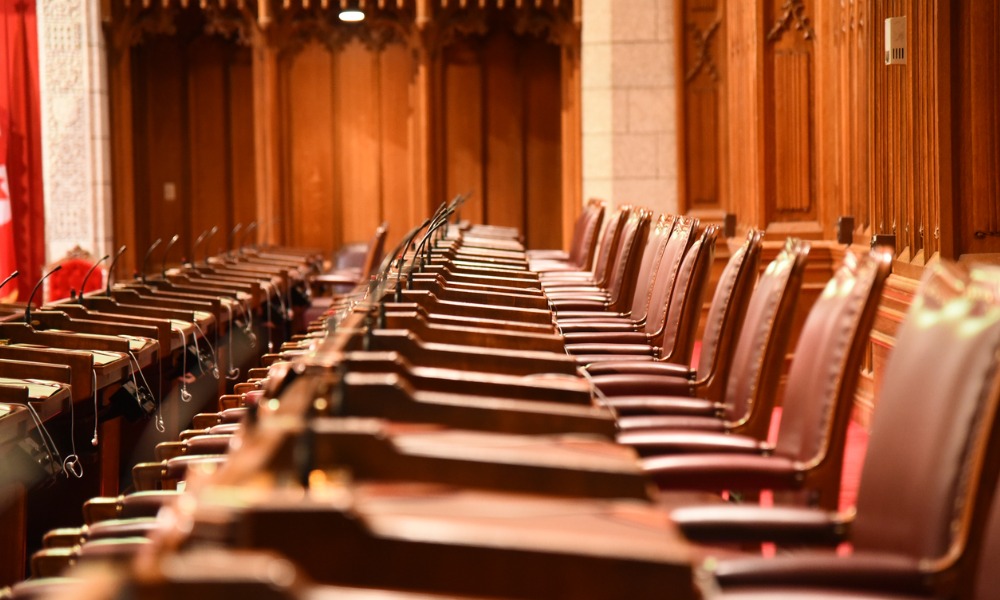
Cases scheduled at Federal Court of Appeal this week also involve industrial design matters

This week, hearings scheduled before the Supreme Court of Canada, the Federal Court of Appeal, and the Federal Court include matters relating to criminal law, civil law, competition law, intellectual property law, admiralty law, real estate, and royalties.
The court scheduled John Howard Society of Saskatchewan v. Government of Saskatchewan (Attorney General for Saskatchewan), 40608 on Oct. 8–9, Tuesday to Wednesday. This civil matter involved inmate disciplinary hearings.
The appellant in this case requested a declaration that s. 68 of the Correctional Services Regulations violated s. 7 of the Canadian Charter of Rights and Freedoms because it did not require proof beyond a reasonable doubt. The Saskatchewan Court of King’s Bench held that s. 68 did not breach s. 7. The Saskatchewan Court of Appeal dismissed the appeal.
The court set Mohamed Adam Bharwani v. His Majesty the King, 40781 on Oct. 10, Thursday. In May 2016, a jury deemed the appellant in this case unfit to stand trial. In August 2016, a second jury reversed the first jury decision and considered him fit to stand trial. He received a conviction for first-degree murder after a trial by judge and jury. His conviction appeal failed.
The court scheduled His Majesty the King v. Stuart Michael George Sabiston, 40937 on Oct. 11, Friday. This case arose from a search incident to arrest where police officers seized a loaded prohibited firearm from the respondent’s backpack after he told them about it. In a voir dire, the trial judge admitted the weapon as evidence and convicted him.
While there were breaches of the respondent’s ss. 8 and 9 Charter rights, the officers would have discovered the firearm during a search incident to an investigative detention, for which they had legal basis under s. 24(2) of the Charter, the judge said.
The Saskatchewan Court of Appeal’s majority performed a fresh s. 24(2) analysis, excluded the weapon from the evidence, and ultimately acquitted the respondent. The trial judge made an error in finding a reasonable suspicion justifying an investigative detention, the majority said.
The appeal court set the consolidated cases of Royal LePage Real Estate Services Ltd et al. v. Sunderland, A-267-23; Toronto Regional Real Estate Board et al. v. Sunderland, A-273-23; and Sunderland v. Toronto Regional Real Estate Board et al, A-294-23 on Oct. 7, Monday.
The underlying claim alleged a conspiracy, agreement, or arrangement to fix, maintain, increase, or control the price for the supply of buyer brokerage services in connection with the purchase and sale of certain listed residential real estate under s. 45(1) of the Competition Act, 1985.
The appeal court scheduled the related cases of Double Diamond Distribution Ltd v. Crocs Canada Inc et al, A-102-23 and Double Diamond Distribution Ltd. v. Crocs Canada, Inc. et al, A-249-22 on Oct. 9, Wednesday. These cases stemmed from an action alleging infringement of an industrial design.
The appeal court set SOCAN v. SiriusXM Canada Inc., A-322-23 on Oct. 9, Wednesday. This matter arose from the Copyright Board of Canada’s decision approving royalties to be collected for the public telecommunication of musical works in the repertoire of the Society of Composers, Authors and Music Publishers of Canada (SOCAN).
The appeal court scheduled Difederico et al. v. Amazon.com, Inc. et al., A-233-23 on Oct. 10, Thursday. This appeal sought to set aside the Federal Court’s dismissal of a motion to certify an action as a class proceeding. The appellants alleged a failure to apply ss. 36(1) and 45(1) of the Competition Act to allegations pleaded in the statement of claim.
The court set Zane v. Rohland et al., T-879-21 on Oct. 7, Monday. The plaintiff wanted the defendants to pay her for services rendered and to reimburse her for materials provided and payments made in relation to two yachts. The plaintiff later moved to reopen her case to allow her to enter further evidence in the ongoing trial.
Last Aug. 26, in Zane v. Rohland, 2024 FC 1319, the Federal Court granted the motion in the exercise of its discretion. The court found reopening the matter in line with the interest of justice, given the circumstances of the case.
The court scheduled The Noco Company, Inc. v. Shenzhen Yike Electronics Co., Ltd. et al., T-484-21 on Oct. 7, Monday. Certain defendants alleged under s. 60(2) of the Patent Act, 1985 that some of their products did not infringe any claim of Canadian patent no. 2,916,782.
The court dismissed a motion for summary trial in the patent action. On Sept. 8, 2023, in Noco Company, Inc. v. Guangzhou Unique Electronics Co., Ltd., 2023 FC 1214, the Federal Court awarded these defendants their costs of the motion in the all-inclusive amount of $114,080.
The court set Norstar Shipping and Trading Ltd. v. The Ship "Rosy" and Rosy Marine Corp., T-1666-19 on Oct. 8, Tuesday. The defendant sought the release of its ship, which had been arrested in Montreal. It wanted to fix bail at $328,535 plus 30-percent uplift for interest and costs.
The plaintiff consented to the release after the defendant posted security by way of a letter of undertaking. On Dec. 9, 2019, in Norstar Shipping and Trading Ltd. v. The Rosy (Ship), 2019 FC 1572, the Federal Court fixed bail for the ship’s release at $1,101,733.10.
The court scheduled 2572495 Ontario Inc. v. Vacuum Specialists (1985) Ltd. et al, T-386-21 on Oct. 10, Thursday. The plaintiff requested an interlocutory injunction to stop the defendants from copying its photographs or using its trademark “VPC” or its tradename “Vacuum Parts Canada.”
On Mar. 14, 2023, in 2572495 Ontario Inc. v. Vacuum Specialists (1985) Ltd., 2023 FC 345, the Federal Court dismissed the motion for an interlocutory injunction upon finding it just and equitable to do so in the circumstances. Each side appeared to have worthy arguments on the merits, which the trial could address, the court noted.